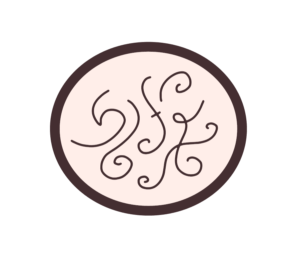The Enormous Power Of Forgiveness
If you’re like me, you would probably roll your eyes when someone mentions the word “forgiveness”. Like “self-love and “being present”, forgiveness is a word we see everywhere in the self-help world. We know these concepts are important spiritual practices that will enrich our lives and lead to personal growth, but they’ve been offered so much that it’s become boring to hear it again and again.
The problem isn’t that forgiveness is boring, it is that it’s seldom elaborated beyond the superficial meaning of the word. When we hear the word, we think we already know what it means. But like “self-love”, we may not know how to actually practise it even if we think we know what it means. Thus, we become frustrated with the whole concept of it, since we know we need to practise it but nobody has given us the instructions on how to actually do it.
Forgiveness isn’t an action or behaviour. It is an internal shift. We know how to make ourselves act in a certain way – e.g. talking to someone we’ve been too angry to talk to for years or saying “I forgive you” to a parent who abandoned you. Most of you who come to this blog are likely to have reached a point in your growth where you have developed the maturity to strretch yourself beyond your egoic drive. Such actions aren’t beyond you and you sincerely want to learn how to forgive someone. But without making the internal shifts, you probably find that your actions just seem empty and insincere.
That frustration eventually leads to a sense of being discouraged, and disillusioned. Eventually we manufacture boredom to avoid going there and getting disappointed with ourselves again.
This is a shame because there is enormous power in forgiveness that most people don’t even realise. In this article, I offer you a different way of understanding forgiveness which will enable you to access this power.
I am not going to tell you to see your parents with new eyes, or to come from more compassion, or see past their mistakes. There is nothing “outside” about this technique I am about to show you. It all takes place internally, and that means you have total control of your own healing.
The True Meaning of Forgiveness
To understand what forgiveness really means, there are two important ideas to grasp:
1. Forgiving isn’t about you doing something or giving your energy to something. There is nothing for you to do or give.
2. Forgiveness ALWAYS means forgiving yourself, without exception.
Contrary to what most people think, forgiving doesn’t mean you doing something or giving your energy in any way. It’s understandable how this is easily miscontrued since “to forgive” is a verb and implies an action to take. In truth, forgiving is the opposite of doing something, it is to stop doing something. You ‘do’ this by retracting what you’ve been doing.
Let me explain. When something happens that triggers a reaction in you, you tend to judge that situation or the person involved. For instance, if you lost your job, you might judge your boss as being heartless to have sacked you; and you might judge the situation of now being jobless to be bad, scary, disempowering. But what usually happens next is that you then judge yourself.
No matter how much you judge a person or a situation, you will end up beating yourself up.
So if you judge someone with this internal statement, “I hate him,” as you sit in the unpleasantness of it you would start to judge something about yourself. You may progress to, “I have a shitty life,” and then, “I am a shitty person, that’s why this is happening to me.”
Ultimately, it is always about the way you see yourself, even if you’re not really aware of it. If you dig deeper, peel the layers, you will likely see that you are beating yourself up in some way and this is what drains your energy the most.
Thus, forgiveness is about forgiving yourself first and foremost. The way to do this is by retracting the harsh statements you make about yourself.
To do this, it helps to become more aware of what you’re saying to yourself about you. In short, you bring out your semi-hidden self-judgements that are yielding an insidious and damaging effect on the way you feel. These self-judgements come from your core beliefs: the beliefs we have about who we are, as a person, in our core. They are buried under a set of other beliefs that are more apparent. Examples are: “I’m a bad person” or “I’m no good”. They are beliefs that speak of you as a person. Thus, something external that triggers unpleasant feelings in you will make you conclude, “I must be a bad person,” or “There must be something wrong with me,” respectively.
If you judge a person’s actions or a situation that you think warrants unforgiveness, at some point in your mind you will come up with the question, “Why does this happen to me?” And your mind will form an answer out of the pool of core beliefs you have to explain it in a way that makes sense to it.
Retract and Feel Your Power Returning
When you find yourself in a situation that gives you unpleasant feelings, whether it is through the actions of someone else or a situation out of your control, simply observe that situation without allowing your mind to make negative statements about yourself.
Simply observe. You may think, “I’m feeling really uncomfortable.” Let it stop there. Do not take the next step. Simply sit with that discomfort. No more. That discomfort is given a chance to heal, evolve, dissipate and reveal something more expansive, inspiring and joyful for you. But if you take the next step of judging yourself, that discomfort is trapped between your observation and judgement and has no chance of healing. Another trigger will continue to keep it stuck, and with time it builds up in intensity, and you become increasingly stuck in it.
Chances are you have a habit of making negative statements about yourself in your head. Get curious and when you become aware that you’ve started to do that, retract. Draw back from it. Pull yourself back to a neutral space, while still feeling the uncomfortable feelings (the uncomfortable feelings are real; what you add on to it through beating yourself up is not). Simply withdraw from what you were about to do.
If you do this, you will instantly feel a lot of energy coming back to you. You will realise how exhausting those mental activities had been and where you’d been wasting your energy on. Without the self-judging mental talks, you can let those emotions be there – to arise naturally and be given a chance to heal.
Now, I will caution you against replacing those self-judgement statements with positive statements. This is an important component to practising forgiveness this way, and a bit tricky given how we’re conditioned to adopt “positive thinking” as a way out.
Do Not Counter with Positive Thinking
I am guessing that some of you, when reading the preceding section of this article, would “think ahead” and decide it’d be good strategy to counter those negative judgements with positive words and statements. Maybe you think you could just counter them with positive affirmations. Do not do this!
If you replace the self-judging thoughts with positive thoughts, it can stop the natural healing process and close down the opportunity to really heal from whatever is causing you pain. In fact, I will make a bold statement: Positive thinking can keep us stuck in suffering, by giving us a quick escape while the pain is still festering deep inside us. Sometimes, positive thinking can be just as unhelpful as beating yourself up. In this forgiveness practice, neither will lead you out of your suffering. The technique I am offering here is to look to another way: letting the pain out by retracting and without countering with positive thinking.
Healing Your Core Beliefs
Ultimately, the unpleasant feelings that arise from your unforgiveness is a manifestation of you feeling uncomfortable in your own skin due to your own judgements about yourself. If you start from the outermost layer and go deeper and deeper, you will get to the core belief that tells you that you are flawed as a human being. This is the bit that needs to be healed. There are a variety of ways to heal our core beliefs, including healing the traumas that gave rise to the forming of these beliefs. But we can heal our core beliefs just as powerfully from the other direction. We can use our unforgiveness as a gateway to this healing.
Thus, you can heal your core beliefs by firstly listing all the things that currently make you feel uncomfortable. The events that trigger us to feel unpleasant feelings could be any of the following categories:
- Procrastination/ bad habits – unable to move through your inner blocks to achieve something or to stop an unhealthy habit.
- Mistakes you have made – things you regret.
- Things that have happened to you – losses, disappointments, unprovoked treatments, accidents, diseases/illnesses (giving you a feeling of injustice).
- Feared scenarios.
- Desired scenarios (that have yet to be realised).
Take a look at the things you have listed. Notice the judgements you have about certain people and situations. Allow yourself to feel the emotions associated with it. Let them just be there. Our emotions have a way of healing themselves if we just let them be there. These emotions are the pain that pulls you into declaring your core beliefs. If you acted on your habit to state to yourself that you are a bad person or an unlovable human being, you lock yourself into a place where you cannot show yourself that the contrary is true. You have in effect ‘sealed your coffin’ with the finality of who you’ve concluded you are as a person.
But if you simply allow the emotions to be there, observing and noting your judgements about it, without thinking negative thoughts about yourself, those emotions can move to a healed place and free you from perpetuating negative core beliefs. That space created by the absence of self-judgements is what allows the healing to happen.
Owning Your Emotional Power
As you allow the uncomfortable emotions to be there, hold an attitude of appreciation for the emotions you are able to feel. The fact that you can feel such intense emotions is a demonstration of the complexity and beauty of being human. Appreciate the fact that you are able to feel such a rich spectrum of emotions and that you are connected to your emotional power.
“Emotional power” is something difficult to grasp for many people since we’re not taught to handle our emotions and, hence, emotions have become synonymous with suffering. But emotions don’t cause us suffering; it is when we follow up by taking further steps into self-beating type of self-talk that creates suffering. In fact, our capacity to feel emotions is what gives us the power to create things – whether it is to transform ourselves, manifest a different outcome, or create more beauty.
Having an appreciation of your emotions, these emotions you are feeling in the absence of self-judgemental thoughts, takes you out of suffering against the world, other people and yourself. You are simply feeling and appreciating the presence of emotions, even if they are painful. There is nothing wrong with having these emotions. You can stay in the unfairness, the injustice of it, of being hurt and betrayed by someone, without constructing any more judgemental thoughts about the situation, the people or yourself. You can make observation-type statements to yourself. You can acknowledge that it sucks, it’s unpleasant, it’s making you uncomfortable. Nothing more. See where it goes.
AT THE END OF THE DAY, forgiveness is about forgiving yourself. It’s not about talking to someone you no longer want in your life, but how you are inside you about it makes a world of difference between forgiveness and unforgiveness. If you’ve forgiven yourself and the other person, it doesn’t matter whether or not that person is your friend now. What you do externally isn’t always an indication of your forgiveness meter. When you practise self-forgiveness in this way, you focus on your relationship with yourself – because all unforgiveness is really only about how you are treating yourself, no matter what and who triggers it. Your unforgiveness towards another will naturally heal as a by-product of you healing your relationship with yourself.



Thank you <3
I would like to subscribe to your blog. Tom has sent me several. I like what I read. Please tell me how to be a regular. Thanks. Linda
Thank you so much. This is very clear and helpful!